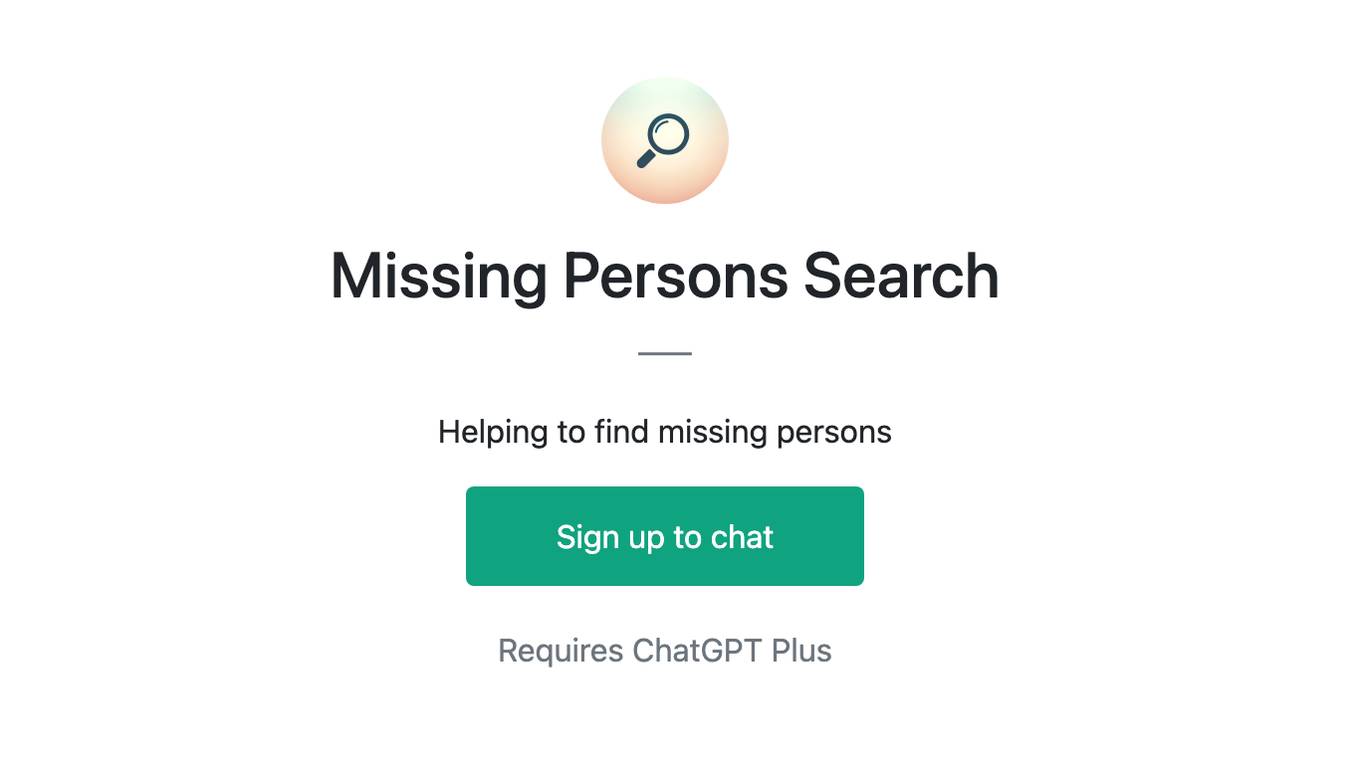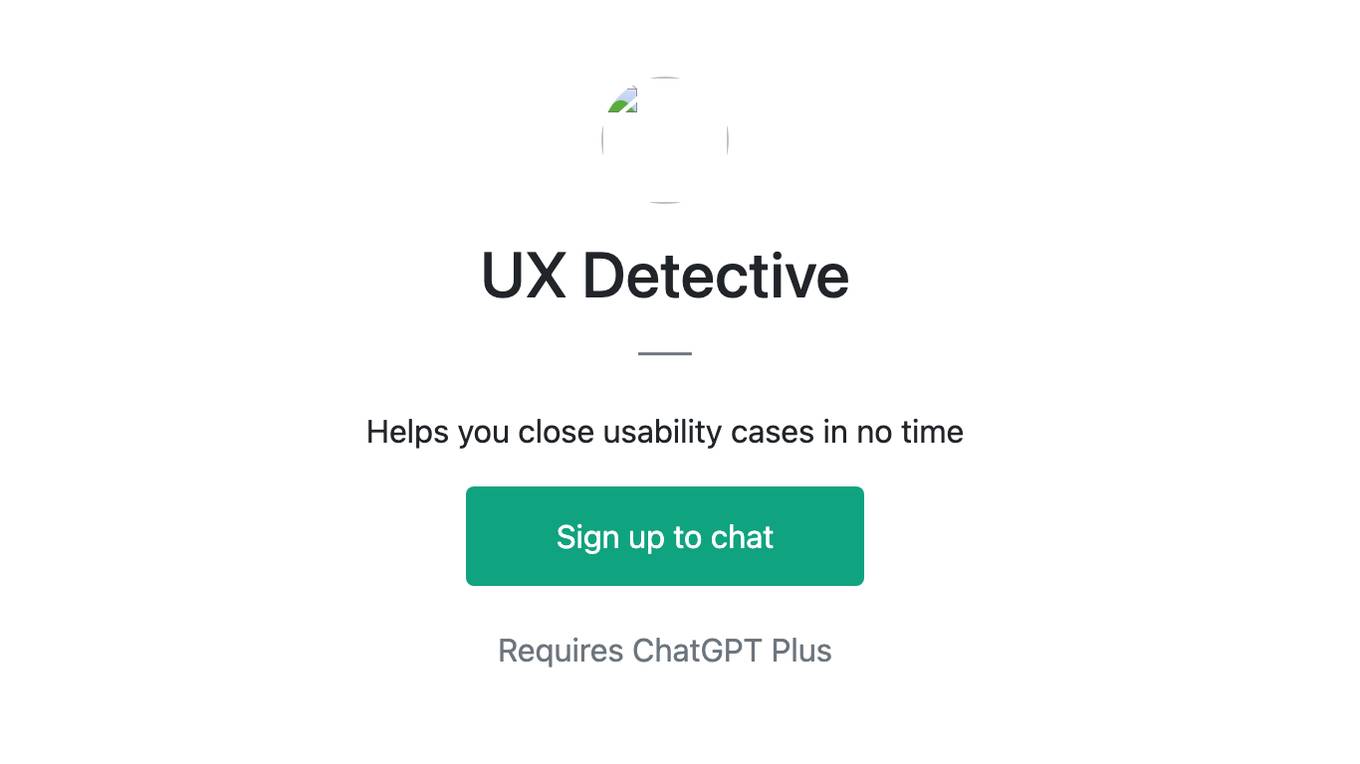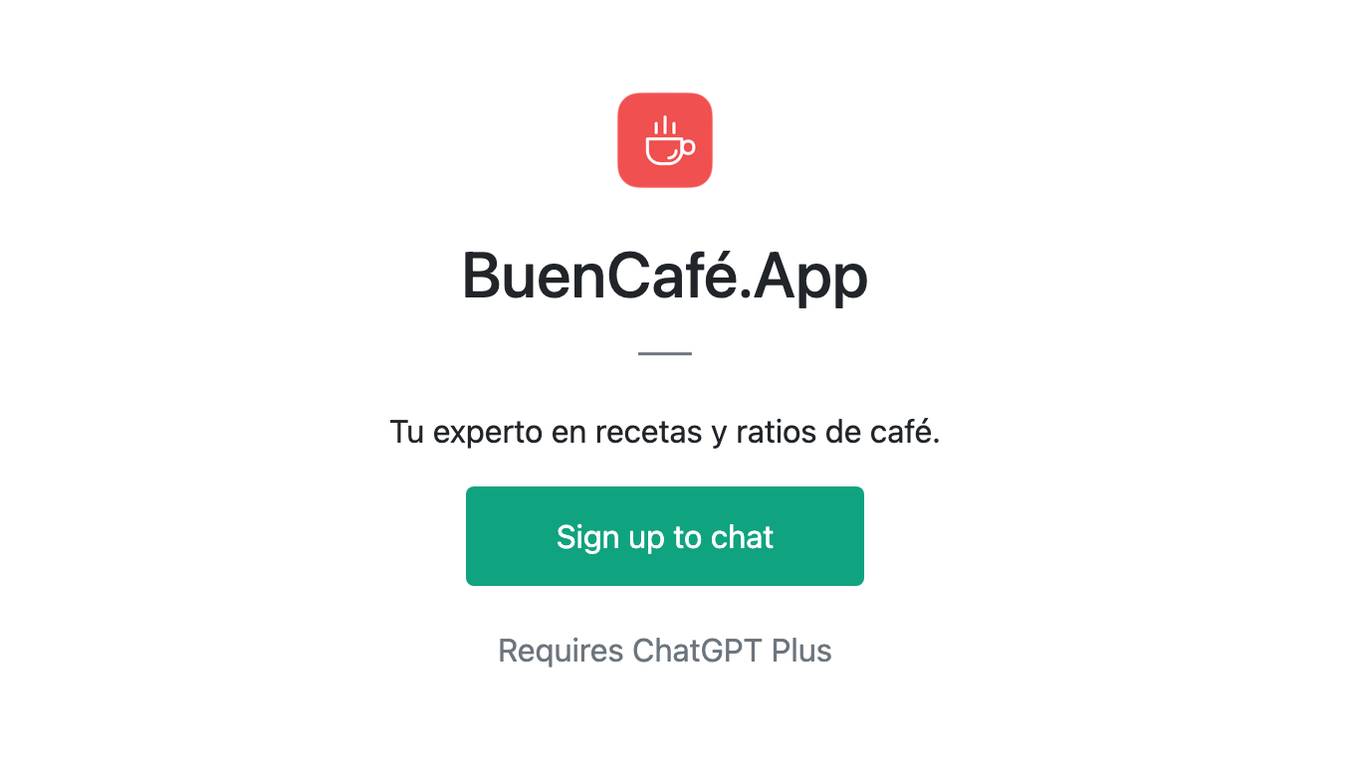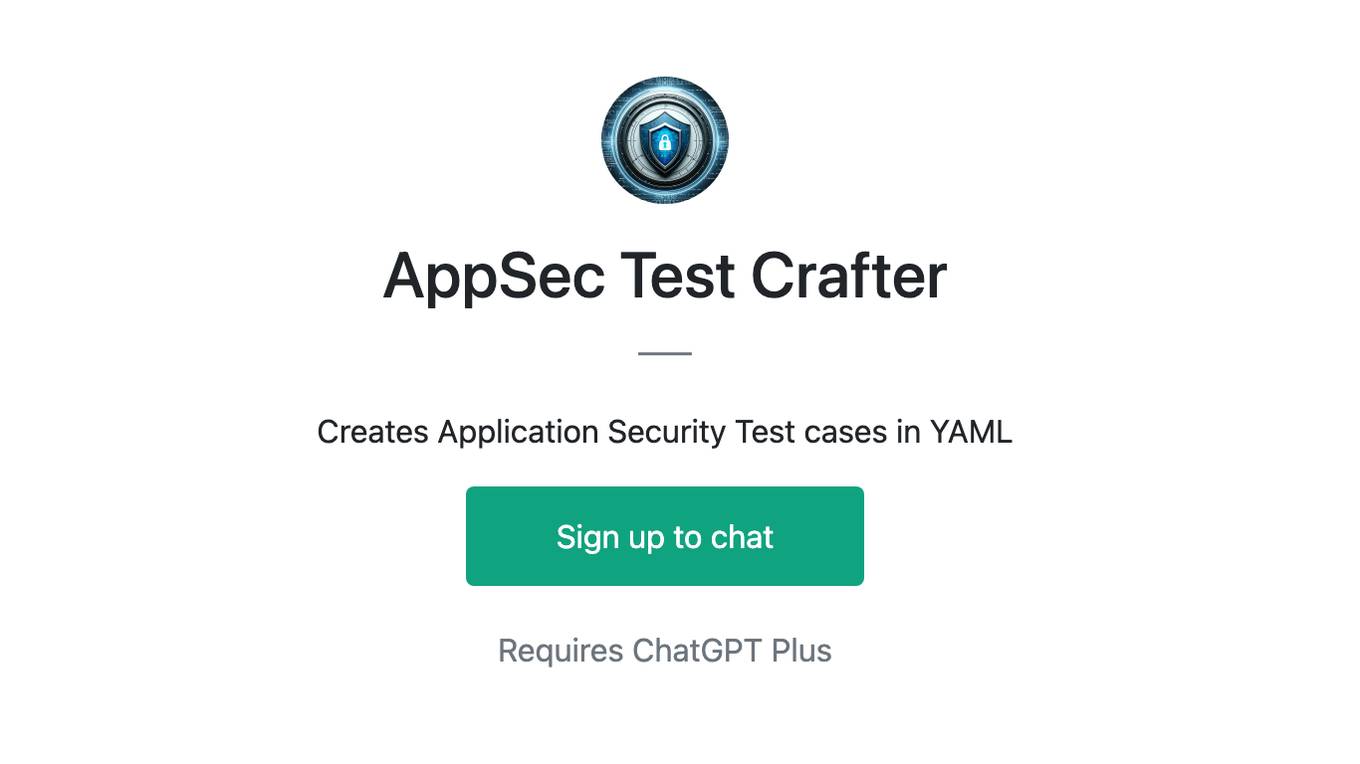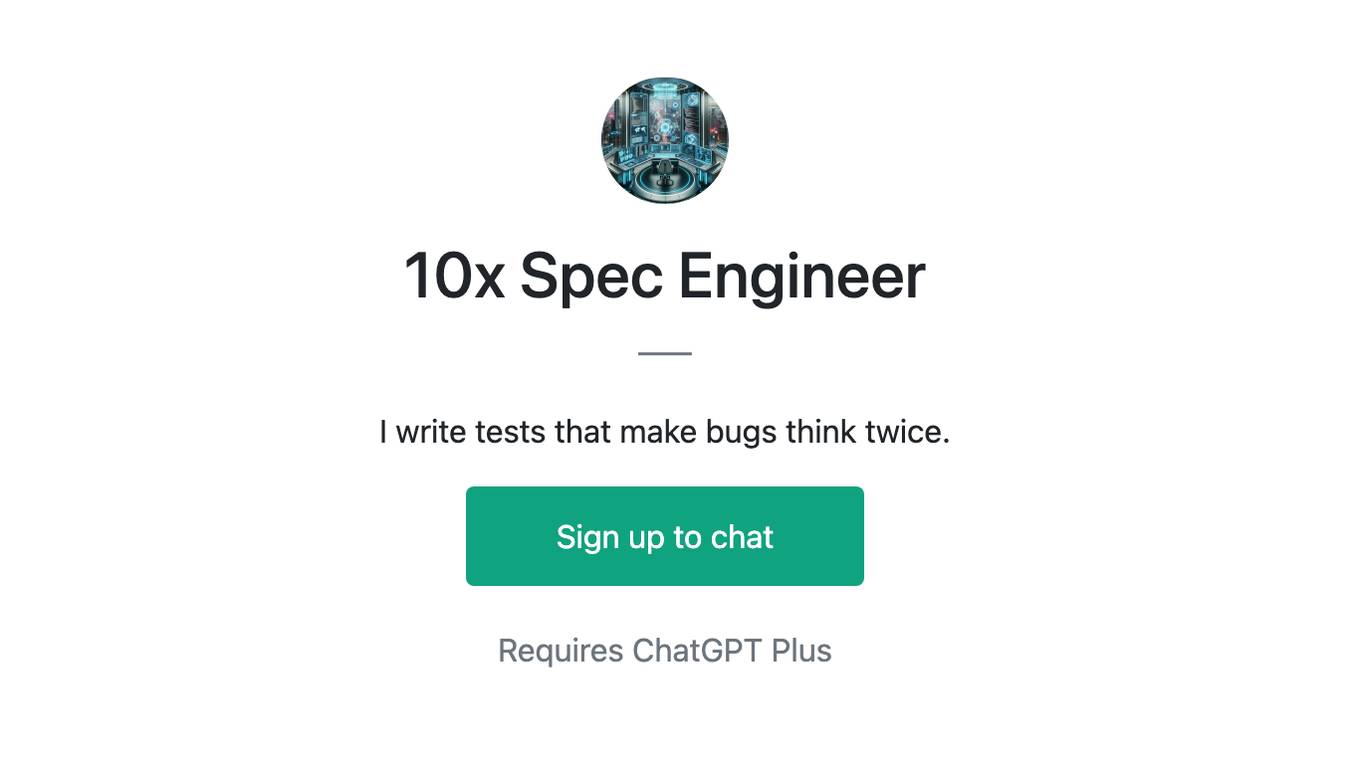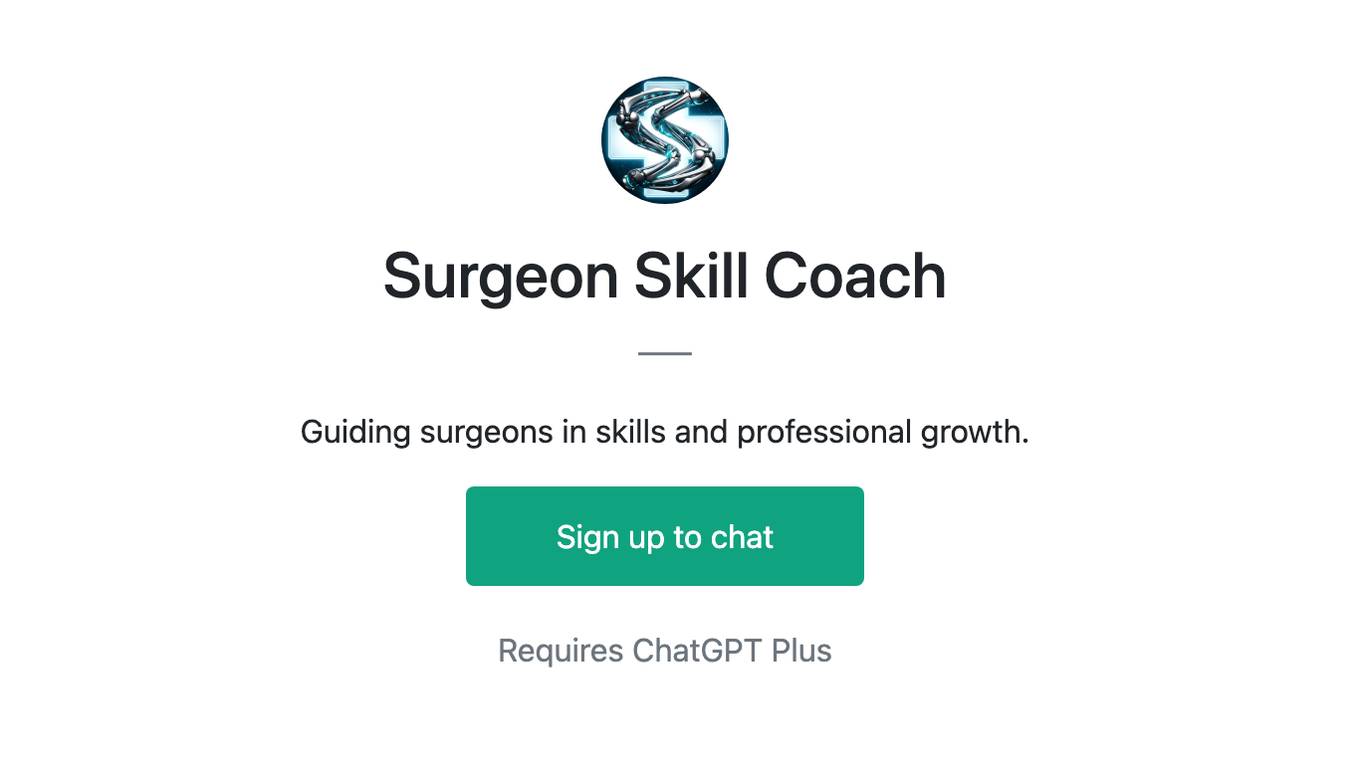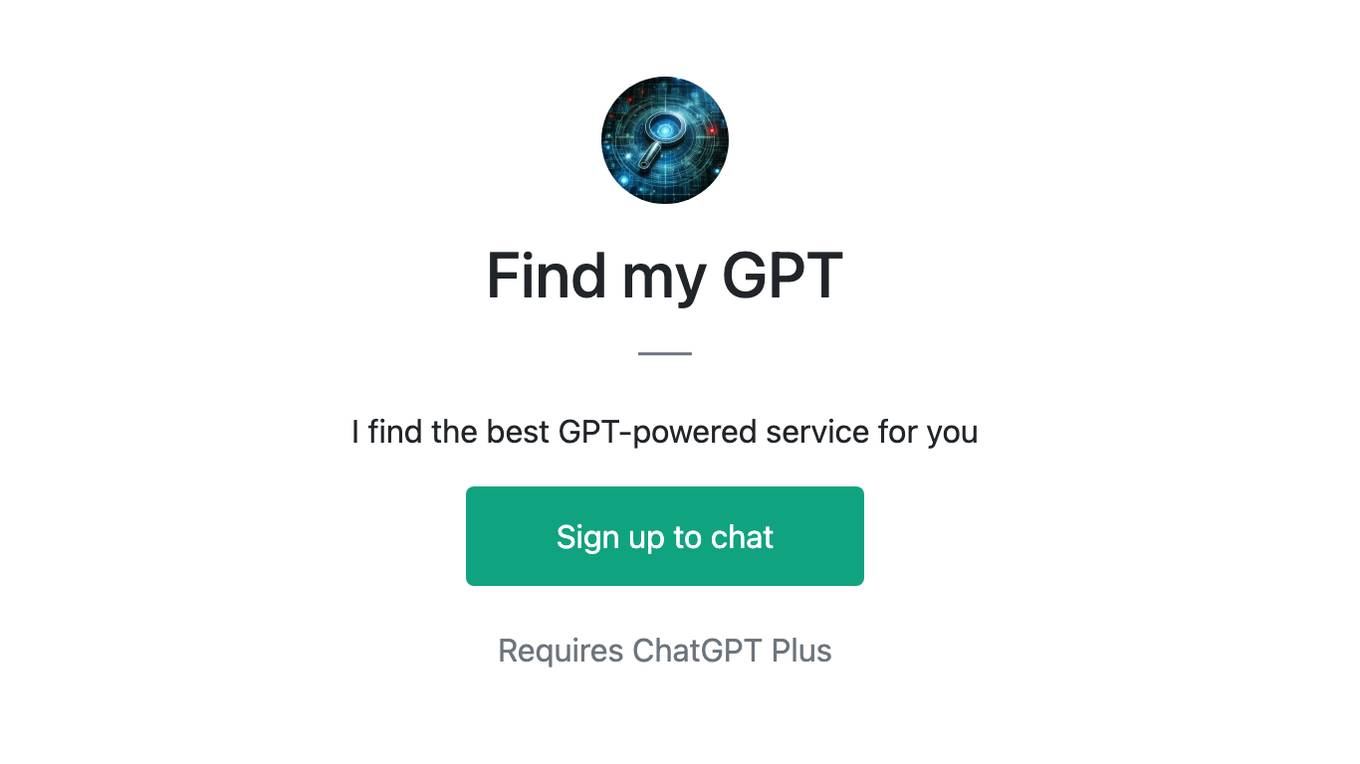Best AI tools for< Find Cafes >
20 - AI tool Sites
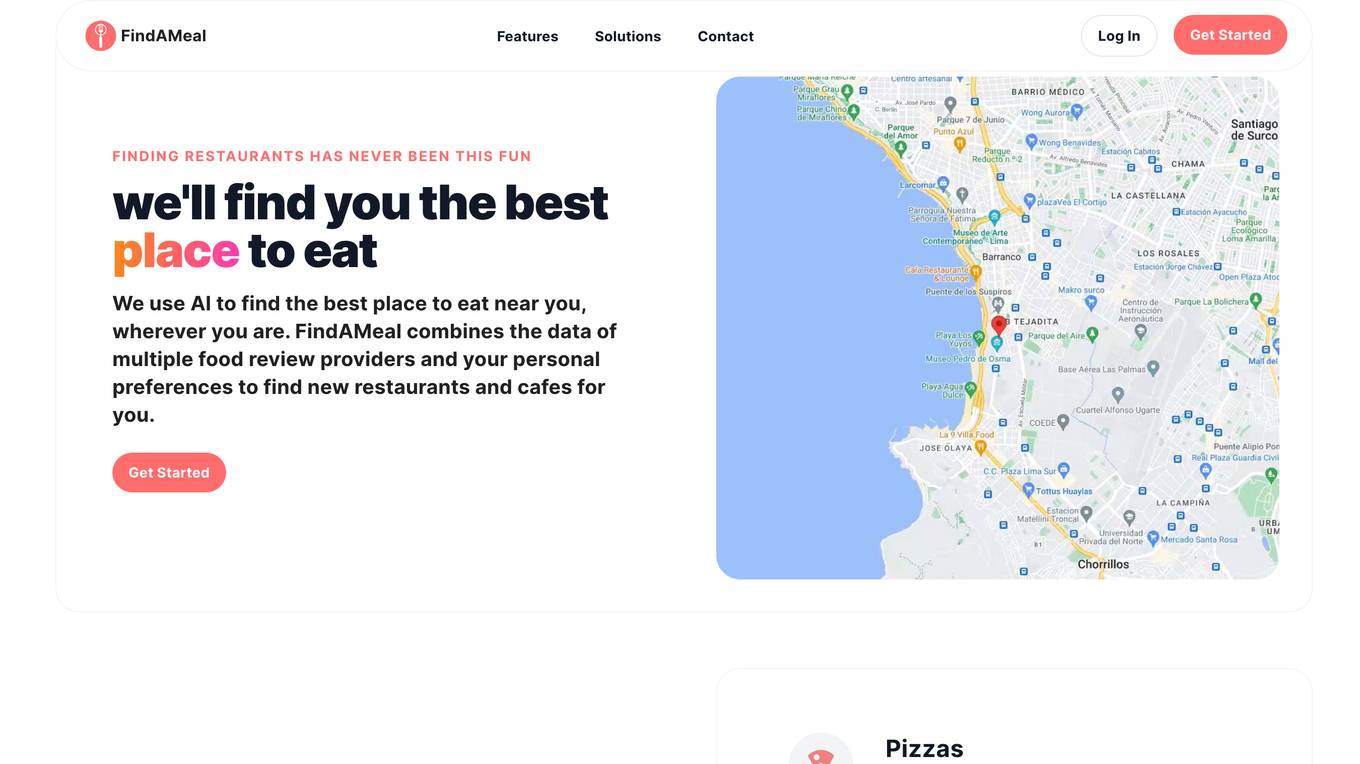
FindAMeal
FindAMeal is an AI-powered search engine that helps users discover nearby restaurants based on their personal preferences. By combining data from various food review providers and utilizing AI technology, FindAMeal simplifies the process of finding the perfect dining spot. Users can make any type of query, from finding a date spot to selecting a fancy restaurant for special occasions. The platform aggregates information from sources like Google, Yelp, and Foursquare to offer tailored recommendations, making it easy for users to explore new dining experiences.

LavieTaste.AI
LavieTaste.AI is an AI-powered application that helps users explore and discover the best restaurants offering Singaporean and Japanese cuisine. By simply entering the desired food or place, the tool provides personalized recommendations for top dining experiences. Users can find a variety of options ranging from retro cafes to popular buffets and top steak houses. LavieTaste.AI aims to enhance the culinary journey of users by offering tailored suggestions based on their preferences and location.

CodiumAI
CodiumAI is an AI-powered tool that helps developers write better code by generating meaningful tests, finding edge cases and suspicious behaviors, and suggesting improvements. It integrates with popular IDEs and Git platforms, and supports a wide range of programming languages. CodiumAI is designed to help developers save time, improve code quality, and stay confident in their code.
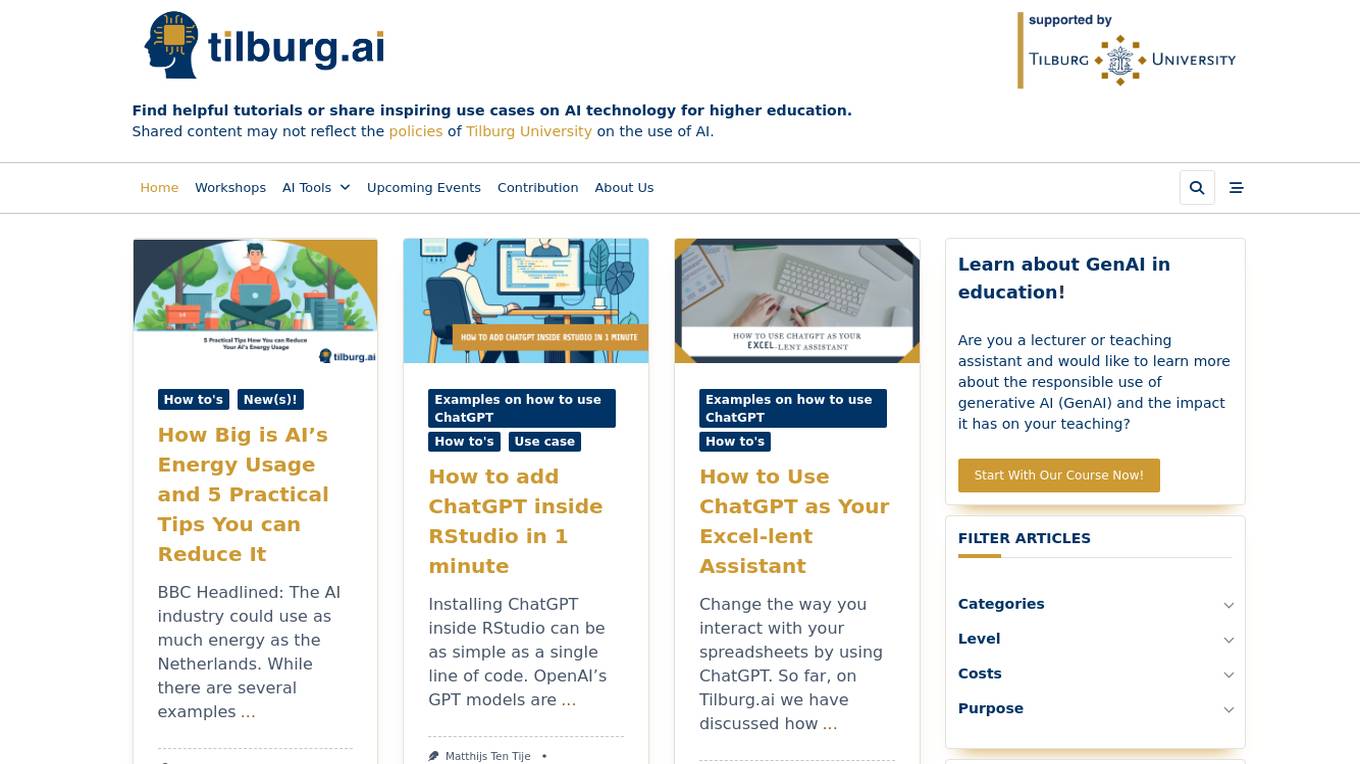
Tilburg.ai
Tilburg.ai is an AI tool that provides helpful tutorials and inspiring use cases on AI technology for higher education. Users can find tutorials on various AI applications, such as ChatGPT, OpenAI API, and AI for web scraping. The platform aims to educate and assist individuals in utilizing AI tools effectively in their educational endeavors.
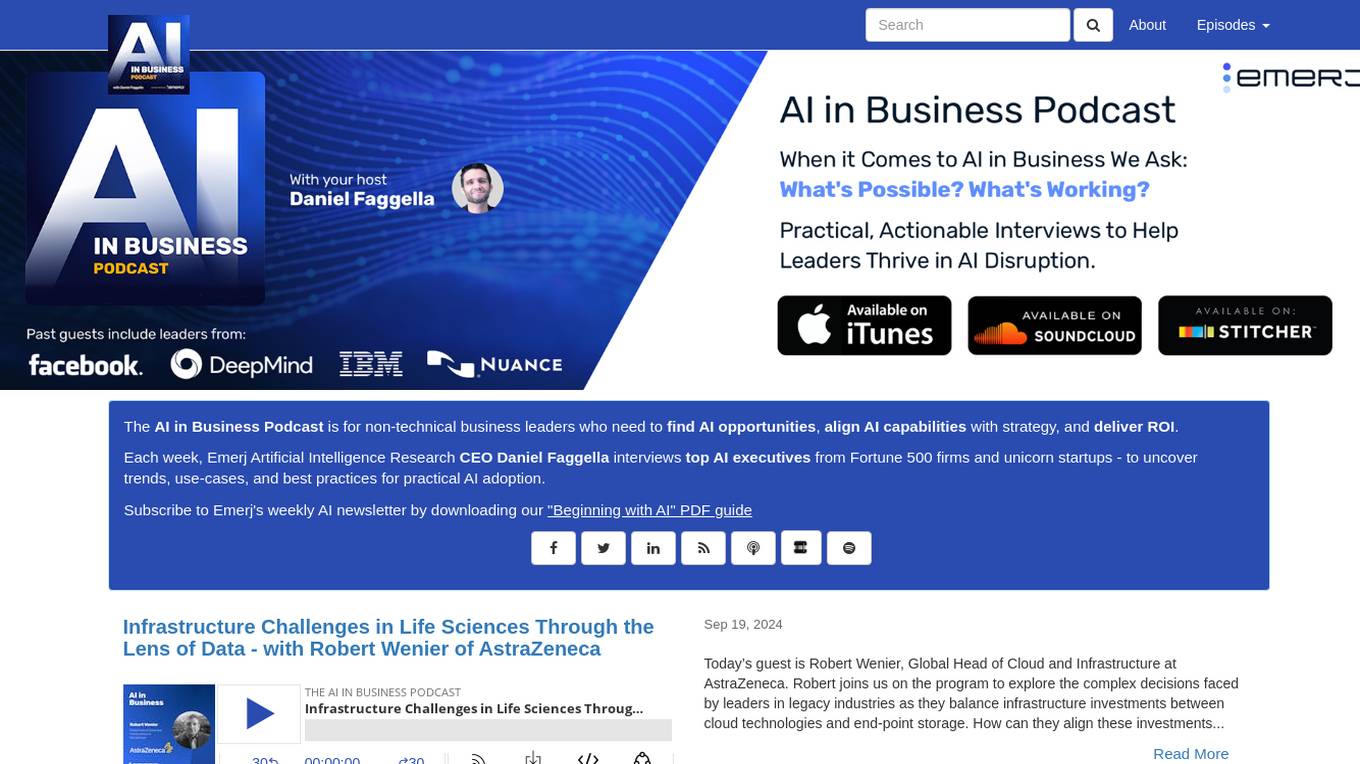
The AI in Business Podcast
The AI in Business Podcast is a platform designed for non-technical business leaders seeking AI opportunities, aligning AI capabilities with strategy, and achieving ROI. The podcast features interviews with top AI executives from Fortune 500 firms and unicorn startups, exploring trends, use-cases, and best practices for practical AI adoption.
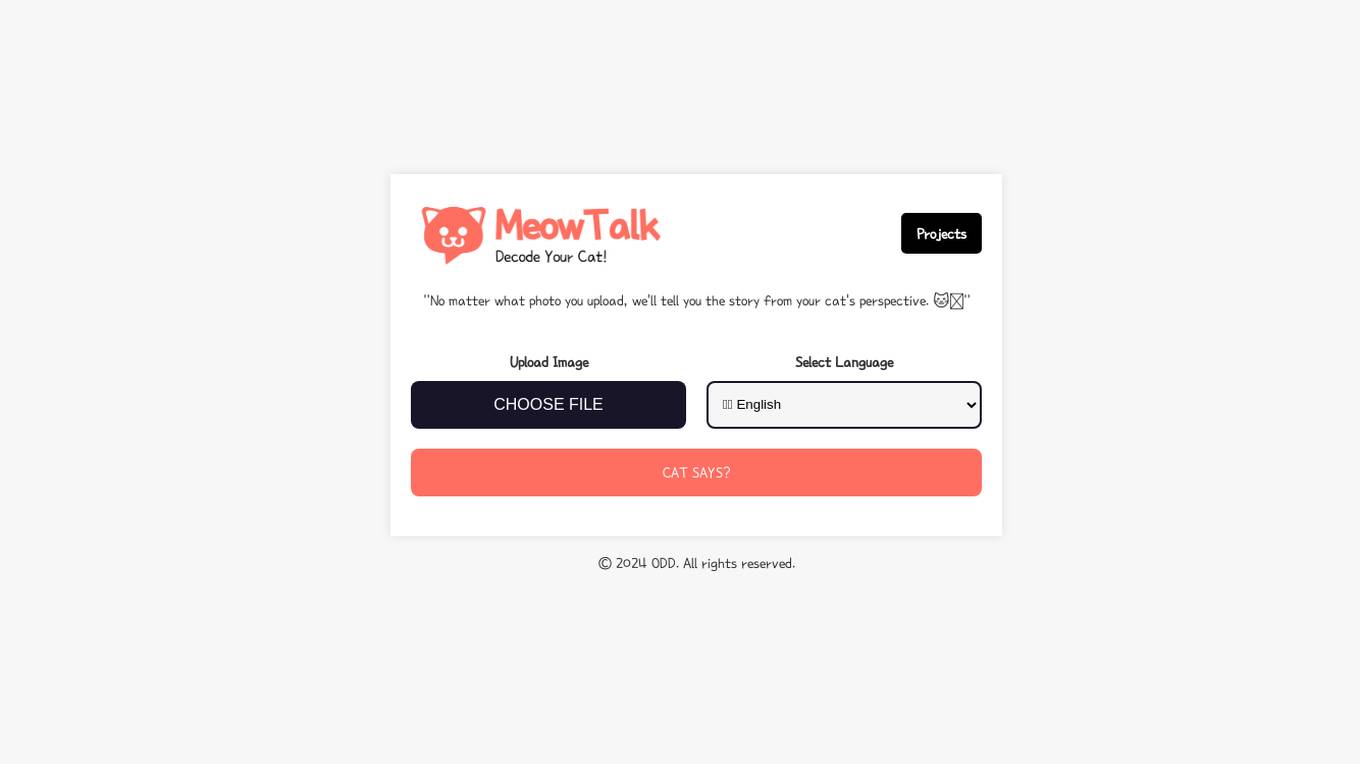
MeowTalk
MeowTalk is an AI tool that allows users to decode their cat's meows and understand what their feline friends are trying to communicate. By analyzing the sound patterns of your cat's meows, MeowTalk translates them into human language, providing insights into your cat's thoughts and feelings. With MeowTalk, you can bridge the communication gap between you and your cat, leading to a deeper understanding and stronger bond.
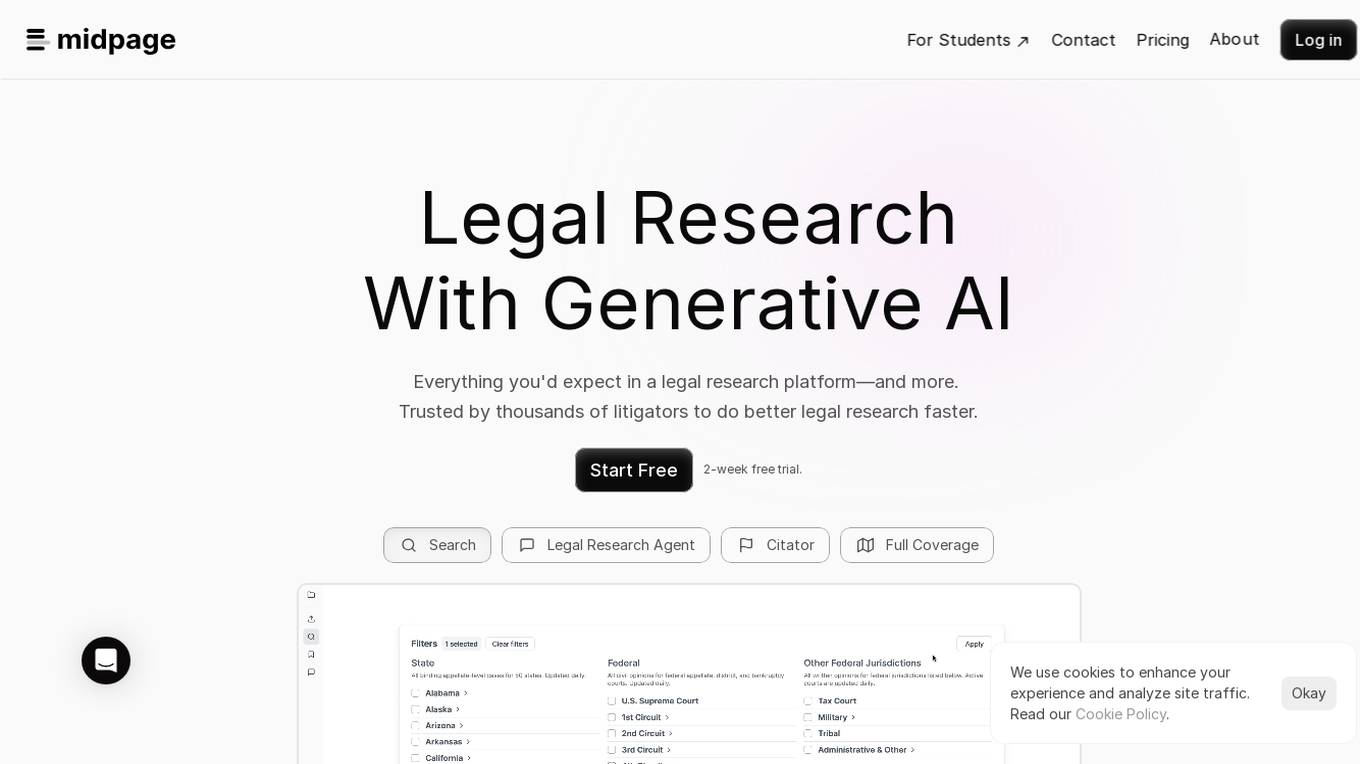
Midpage
Midpage is a legal research platform powered by Generative AI, designed to provide comprehensive legal research capabilities to students and professionals. The platform offers advanced features such as grid-based search, case filtering with AI, proactive annotations, and seamless integration of research into documents. Midpage aims to streamline the legal research process by leveraging AI technology to enhance efficiency and accuracy in analyzing legal cases and statutes.
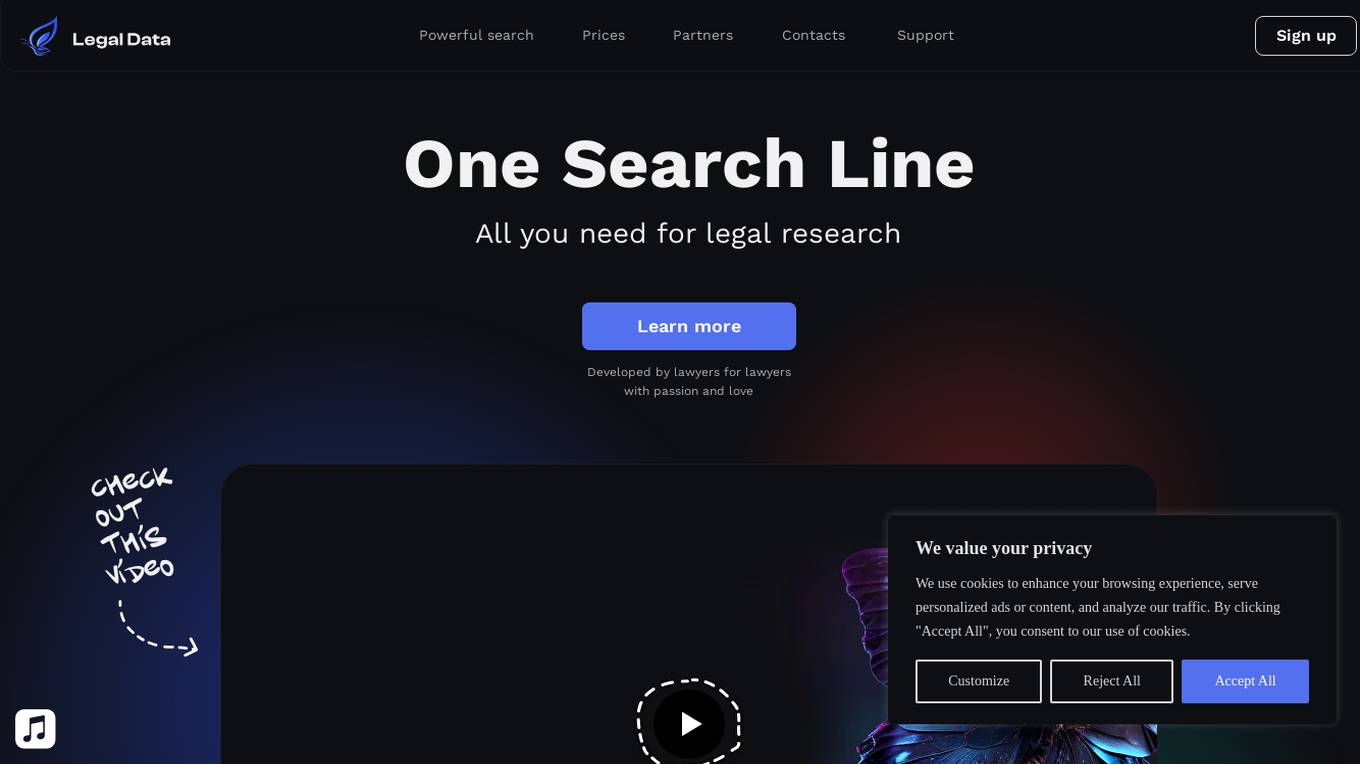
Legal Data
Legal Data is a comprehensive legal research platform developed by lawyers for lawyers. It offers a powerful search feature that covers various legal areas from commercial to criminal law. The platform recognizes synonyms, legalese, and abbreviations, corrects typos, and provides suggestions as you type. Additionally, Legal Data includes an AI-assistant called FlyBot, trained on carefully selected laws and cases, to provide accurate legal answers without fabricating information.
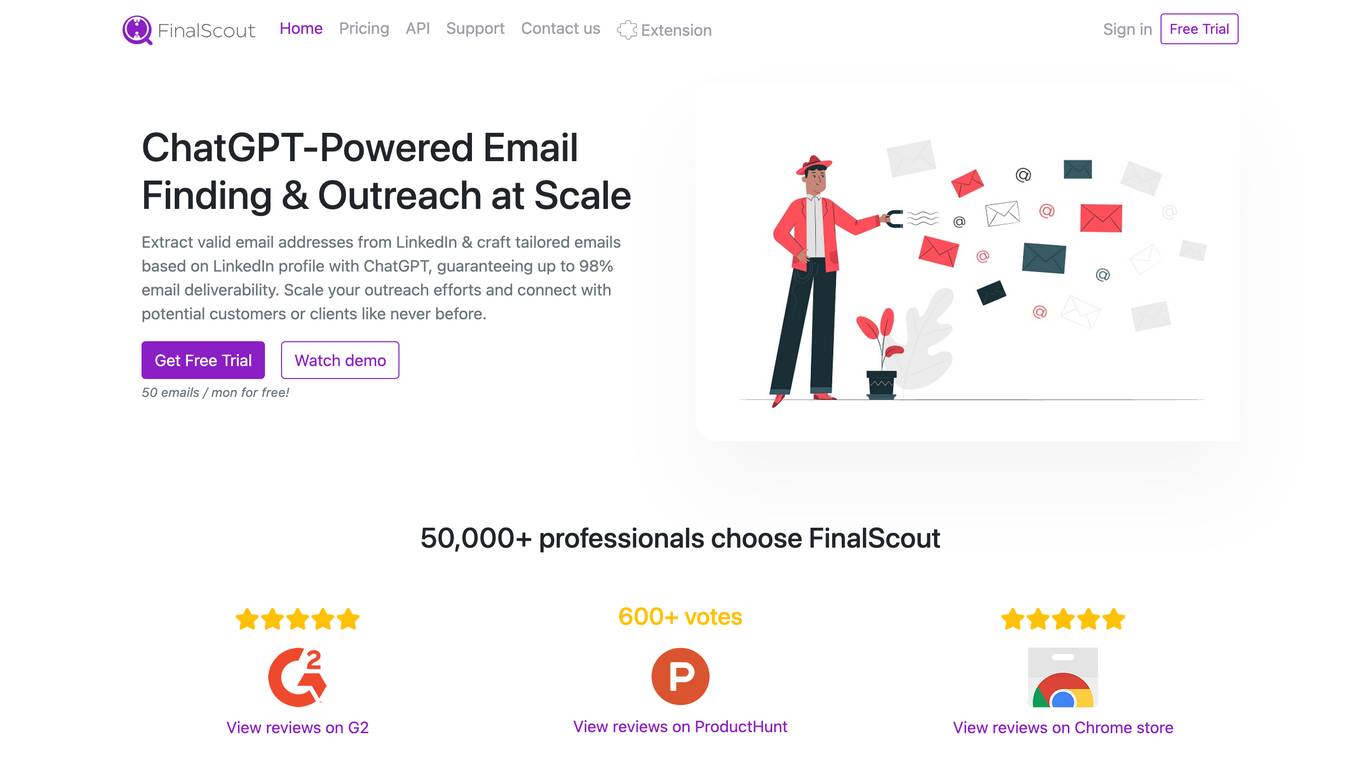
FinalScout
FinalScout is an AI-powered email finding and outreach tool that helps users find valid email addresses for professionals and craft tailored emails at scale. The tool guarantees up to 98% email deliverability, enabling users to scale their outreach efforts and connect with potential customers or clients effectively. FinalScout boasts a massive and accurate database of 500M business profiles, 20M company profiles, and 200M email addresses. With advanced AI technology powered by OpenAI, FinalScout simplifies the process of writing outreach emails by offering a library of templates for various use cases, making outreach effortless and effective.
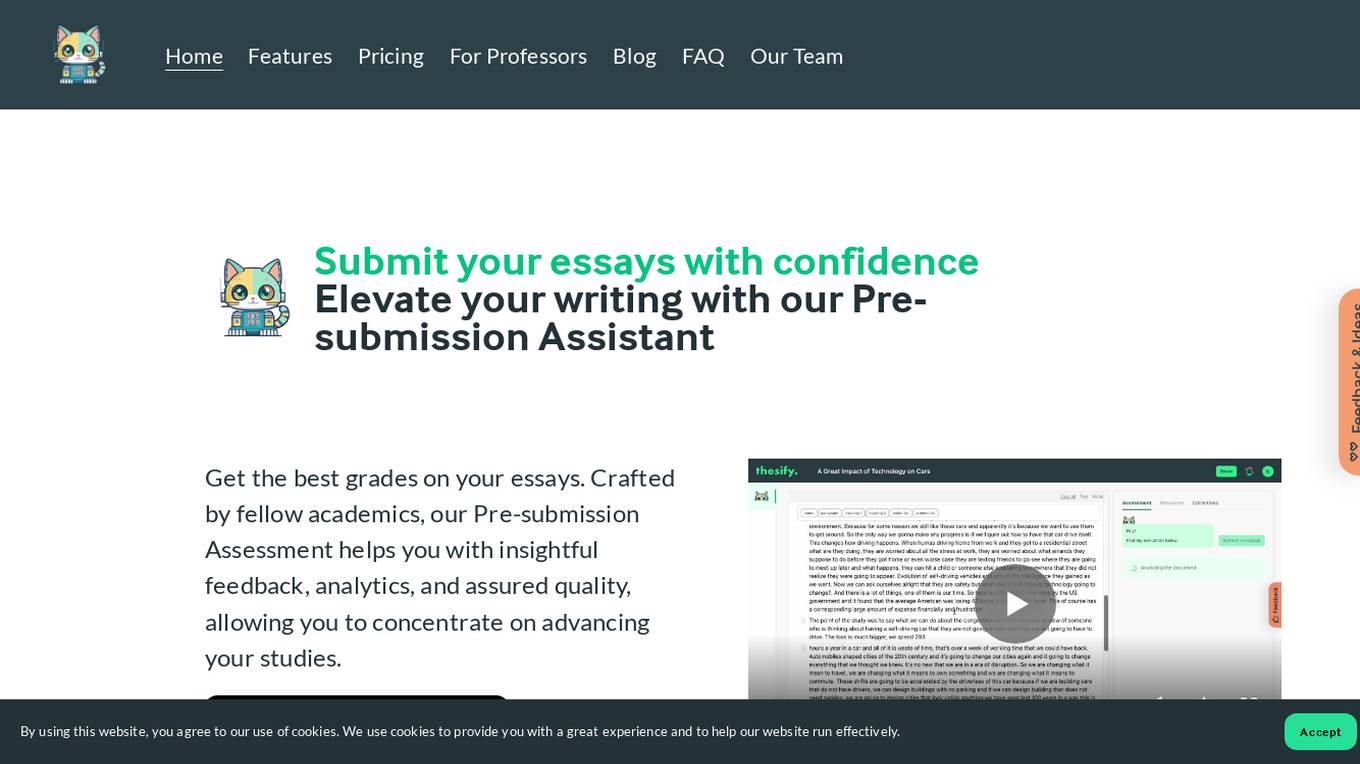
Thesify.ai
Thesify.ai is an AI essay writing tool designed to assist students in academic writing. It offers features such as writing-coach, semantic article search, pre-submission assessment, intelligent paper digest, and agile editor. The tool aims to provide AI-powered assistance, insights, and feedback to help students improve their writing skills while maintaining academic integrity.
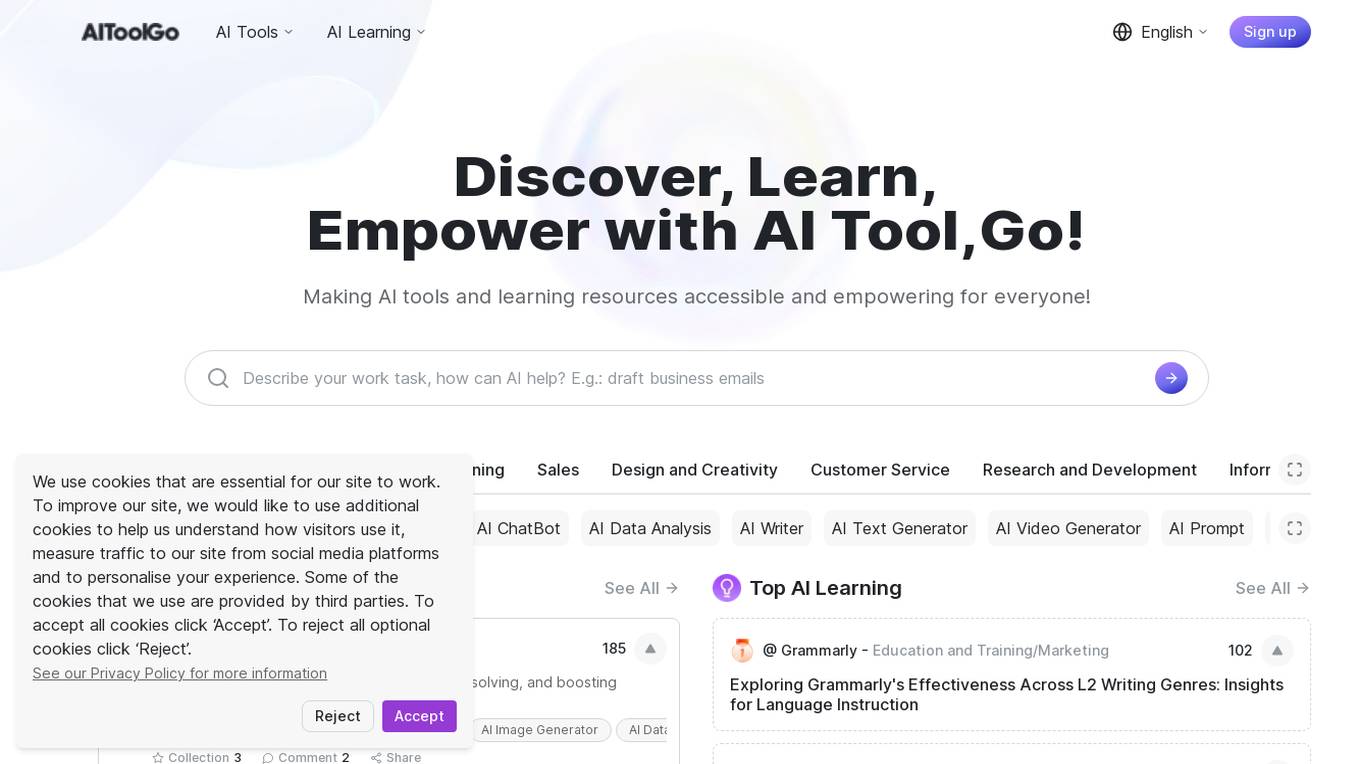
AiToolGo
AiToolGo is an AI learning platform that aims to make AI tools and learning resources accessible and empowering for everyone. The platform offers a curated collection of AI tools, tutorials, use cases, and expert insights across various industries. Whether you're a beginner or a pro, AiToolGo is designed to help you excel in AI skills. The platform provides top AI tools such as AI ChatBot, AI Image Generator, and AI Writer, along with top AI learning resources like AI Assistant, AI Text Generator, and AI Data Analysis. AiToolGo is a one-stop platform for discovering, learning, and empowering individuals with the potential of AI for both personal and professional growth.
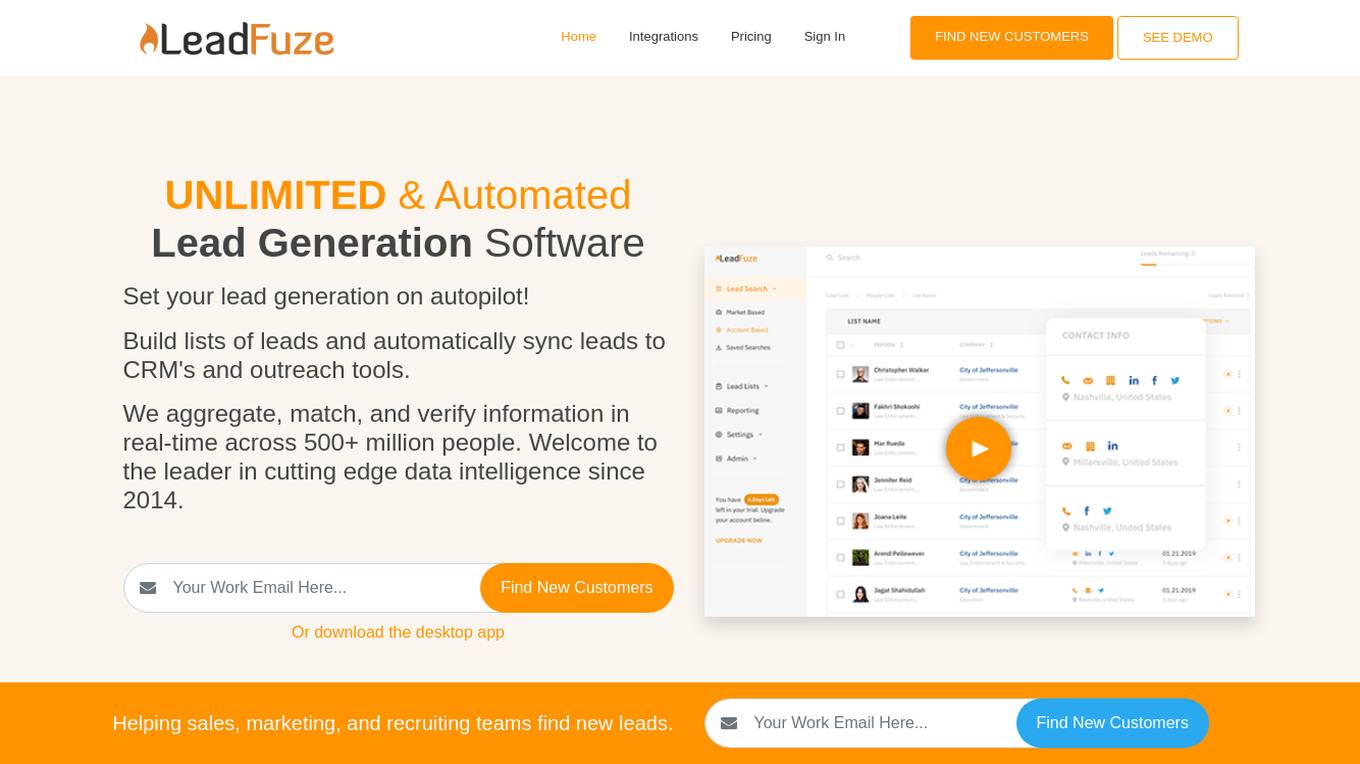
LeadFuze
LeadFuze is an AI-powered prospecting tool for business leads and candidate sourcing. It offers unlimited and automated lead generation software that sets lead generation on autopilot. LeadFuze aggregates, matches, and verifies information in real-time across 500+ million people. It provides accurate contact and data intelligence for revenue teams and recruiters, with top ratings for ease-of-use, quality of support, and ease-of-setup. The tool is built specifically for sales, marketing, and recruiting use cases, offering hyper-targeted lead searches, complete list building automation, and integration with CRM and workflow tools. LeadFuze's AI capabilities allow users to find new leads, search specific accounts, and automate lead generation workflows effortlessly.

Dr. Amit Ray
Dr. Amit Ray is famous for his teachings on peace, compassion, meditation, non- violence, 114 chakras, compassionate AI, mindfulness, leadership and creativity. He is also famous for his contribution in the field of quantum computing and artificial intelligence. He has spent several years in high Himalaya in deep silent meditation. He is one of the rare meditation master, who has fully experienced the higher consciousness and fully conversant with the ancient meditation literature as well as modern high end researches. He often remains engrossed in deep meditation in the dense forests, caves, and snow-covered peaks of the Himalayas. At the same time he always keeps a watchful compassionate gaze for the well-being of the humanity. His compassion and meditation teachings transcends the limitations of worldly distinctions such as religion, country, culture, caste, class, color, history, and geography.
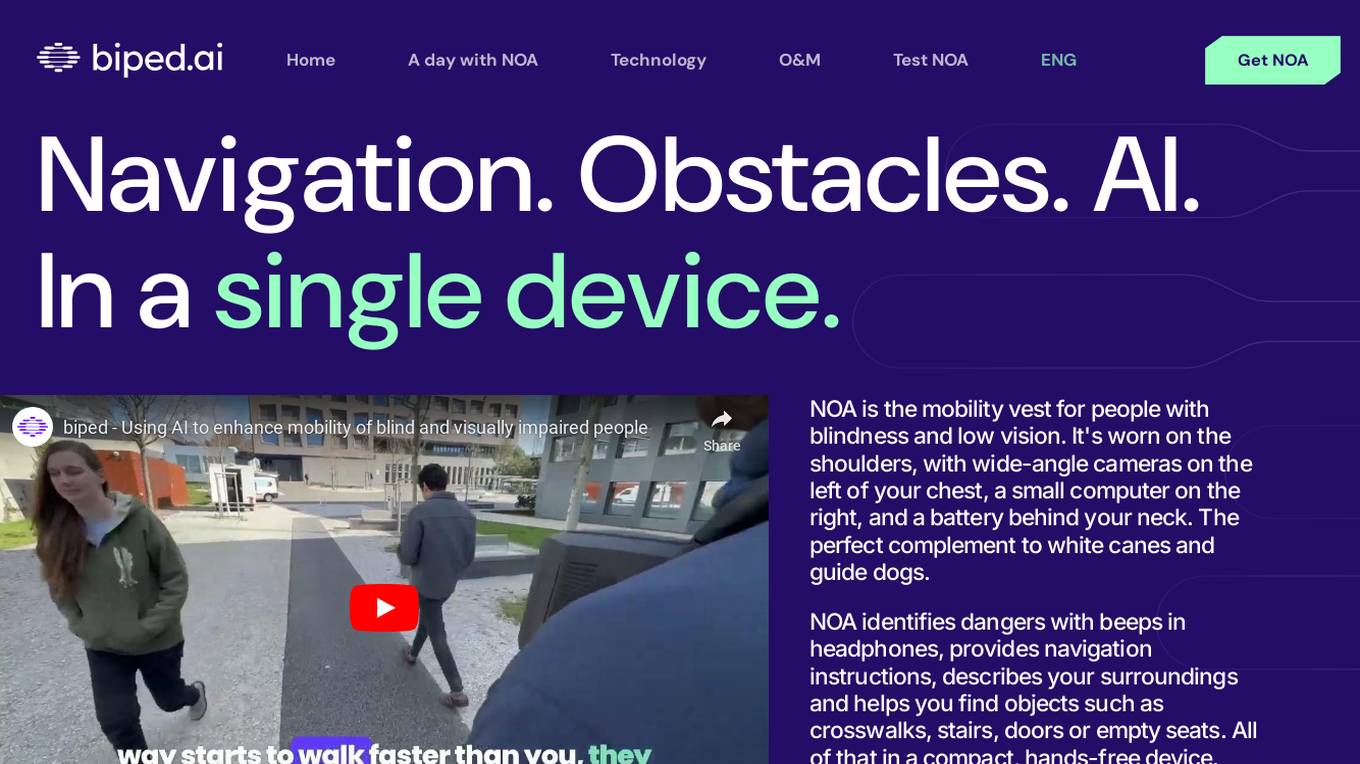
NOA
NOA by biped.ai is a revolutionary mobility vest designed to enhance the independence and safety of individuals with blindness and low vision. It combines cutting-edge AI technology with wearable devices to provide real-time navigation instructions, obstacle detection, and object finding capabilities. NOA is a hands-free solution that complements traditional mobility aids like white canes and guide dogs, offering a compact and lightweight design for seamless integration into daily life. Developed through extensive research and collaboration with experts in the field, NOA aims to empower users to navigate their surroundings with confidence and ease.
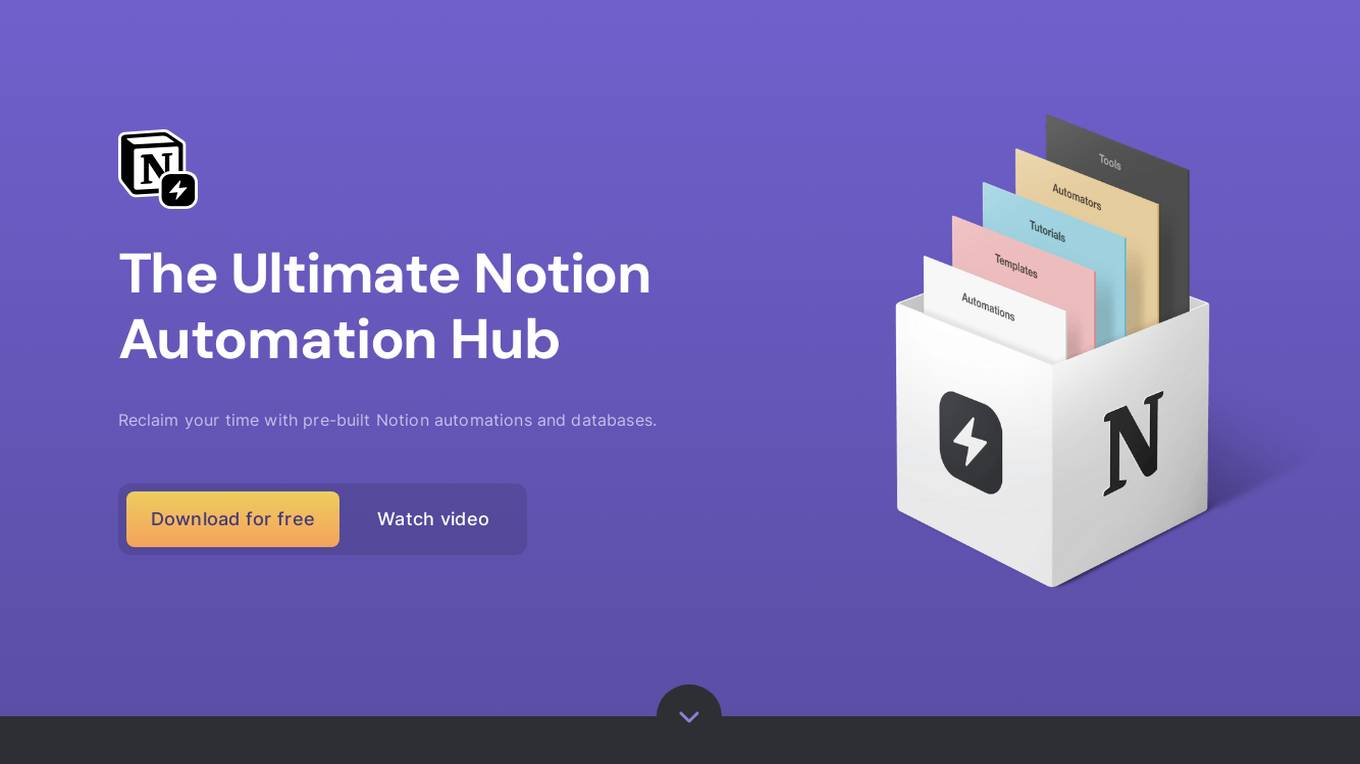
The Notion Automation Hub
The Notion Automation Hub is a website that provides pre-built Notion automations and databases to help users save time and improve their productivity. The website offers a variety of automations for different use cases, including job roles, workflows, and tasks. Users can also find pre-built database templates, Notion expert resources, and automation tools. The website is not affiliated with Notion Labs Inc.
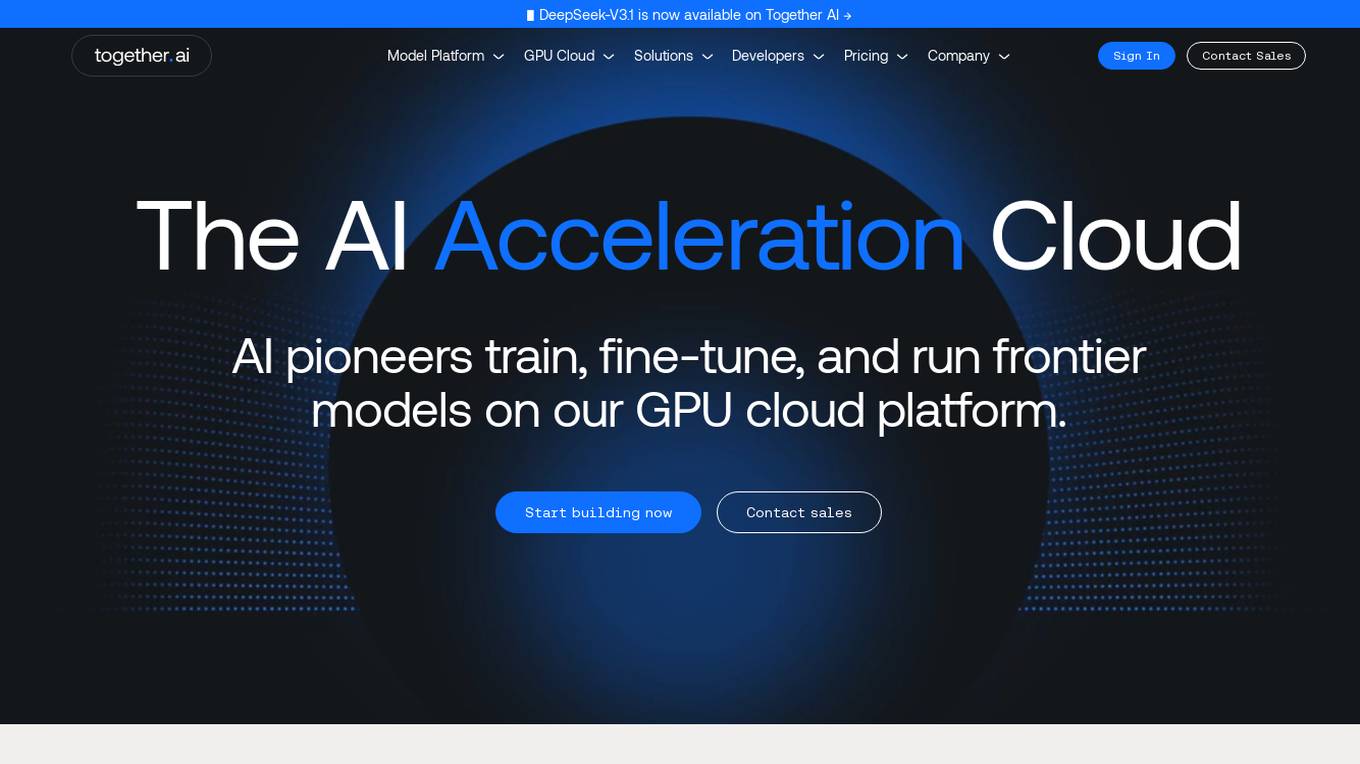
Together AI
Together AI is an AI Acceleration Cloud platform that offers fast inference, fine-tuning, and training services. It provides self-service NVIDIA GPUs, model deployment on custom hardware, AI chat app, code execution sandbox, and tools to find the right model for specific use cases. The platform also includes a model library with open-source models, documentation for developers, and resources for advancing open-source AI. Together AI enables users to leverage pre-trained models, fine-tune them, or build custom models from scratch, catering to various generative AI needs.

Fathom AI Notetaker
Fathom is an AI-powered note-taking tool that helps you record, transcribe, and summarize your meetings. It integrates with Zoom and Google Meet, and offers a range of features to help you stay organized and productive. **Key Features** * **Automatic recording and transcription:** Fathom automatically records and transcribes your meetings, so you can focus on the conversation instead of taking notes. * **AI-generated summaries:** Fathom uses AI to generate summaries of your meetings, which can save you time and help you identify key takeaways. * **Highlighting and bookmarking:** You can highlight and bookmark important moments in your meetings, so you can easily find them later. * **Sharing and collaboration:** You can share your meeting recordings and summaries with others, and collaborate on notes and action items. * **Integrations:** Fathom integrates with a range of other tools, including Zoom, Google Meet, Slack, and Asana. **Benefits** * **Save time:** Fathom can save you hours of time by automatically recording and transcribing your meetings. * **Stay organized:** Fathom helps you stay organized by providing a central place to store your meeting recordings and notes. * **Improve productivity:** Fathom can help you improve your productivity by providing you with easy access to the information you need from your meetings. * **Make better decisions:** Fathom can help you make better decisions by providing you with a clear understanding of what was discussed in your meetings. **Pricing** Fathom is free to use for individuals. There is also a paid Team Edition that offers additional features, such as: * **Unlimited storage:** The Team Edition gives you unlimited storage for your meeting recordings and notes. * **Team management:** The Team Edition allows you to manage your team's access to Fathom. * **Custom branding:** The Team Edition allows you to customize Fathom with your own branding. **Alternatives** * Otter.ai * Trint * Descript * Rev **Use Cases** * **Sales:** Fathom can help sales teams track their progress and identify opportunities. * **Customer success:** Fathom can help customer success teams build relationships with their customers and resolve issues quickly. * **Product development:** Fathom can help product development teams gather feedback from users and improve their products. * **Marketing:** Fathom can help marketing teams track the effectiveness of their campaigns and generate leads. * **Education:** Fathom can help educators record and share lectures and other materials with students. **FAQ** **Q: How much does Fathom cost?** A: Fathom is free to use for individuals. There is also a paid Team Edition that offers additional features. **Q: What are the benefits of using Fathom?** A: Fathom can save you time, help you stay organized, improve your productivity, and make better decisions. **Q: What are the alternatives to Fathom?** A: Some alternatives to Fathom include Otter.ai, Trint, Descript, and Rev. **Q: What are some use cases for Fathom?** A: Fathom can be used for a variety of purposes, including sales, customer success, product development, marketing, and education.
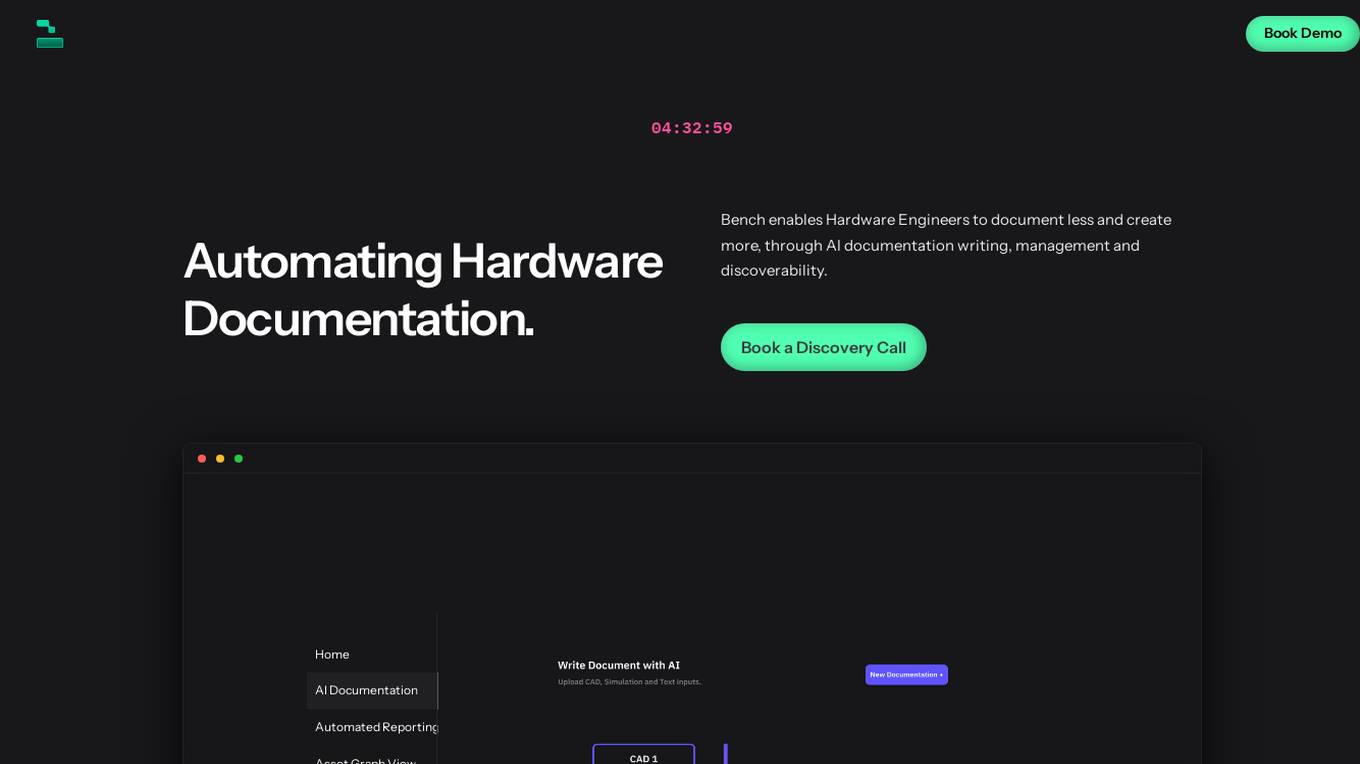
Bench
Bench is an AI tool designed to automate hardware documentation for Hardware Engineers. It helps users document less and create more by utilizing AI for documentation writing, management, and discoverability. The tool offers features such as adapting to specific use cases, AI documentation writing, single source of truth, data-rich asset pages, highlighting compliance gaps, automated reports, and physical asset logging. Bench is advantageous for increasing productivity, improving documentation accuracy, streamlining workflows, enhancing compliance, and enabling seamless integrations. However, it may have limitations in customization options, initial learning curve, and potential dependency on AI accuracy. The tool is suitable for Hardware Engineers, Technical Writers, Documentation Specialists, Compliance Officers, and Quality Assurance Engineers. Users can find Bench using keywords like AI documentation, hardware documentation automation, AI writing tool, documentation management tool, and asset logging AI. Tasks users can perform with Bench include automate documentation, manage assets, write AI documentation, generate reports, and log physical assets.
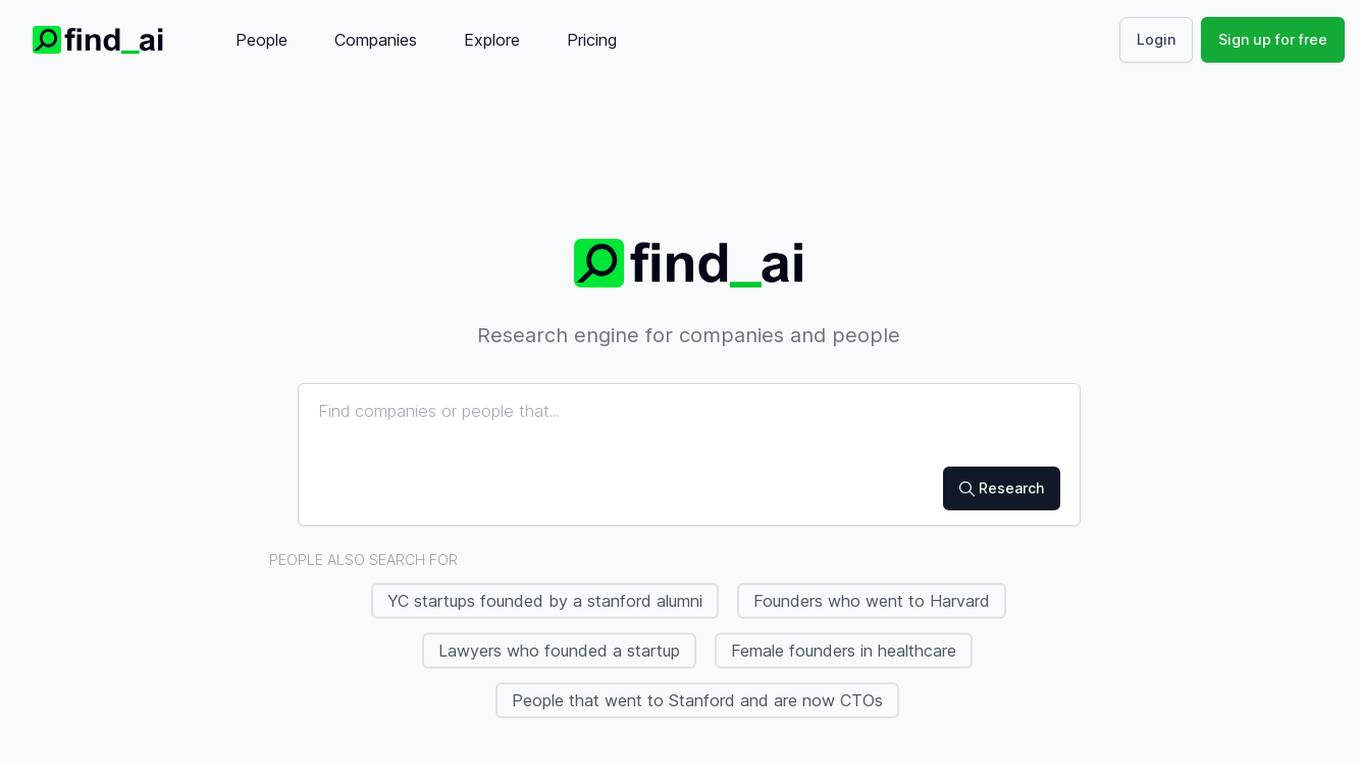
Find AI
Find AI is an AI-powered search engine that provides users with advanced search capabilities to unlock contact details and gain more accurate insights. The platform caters to individuals and companies looking to research people, companies, startups, founders, and more. Users can access email addresses and premium search features to explore a wide range of data related to various industries and sectors. Find AI offers a user-friendly interface and efficient search algorithms to deliver relevant results in a timely manner.
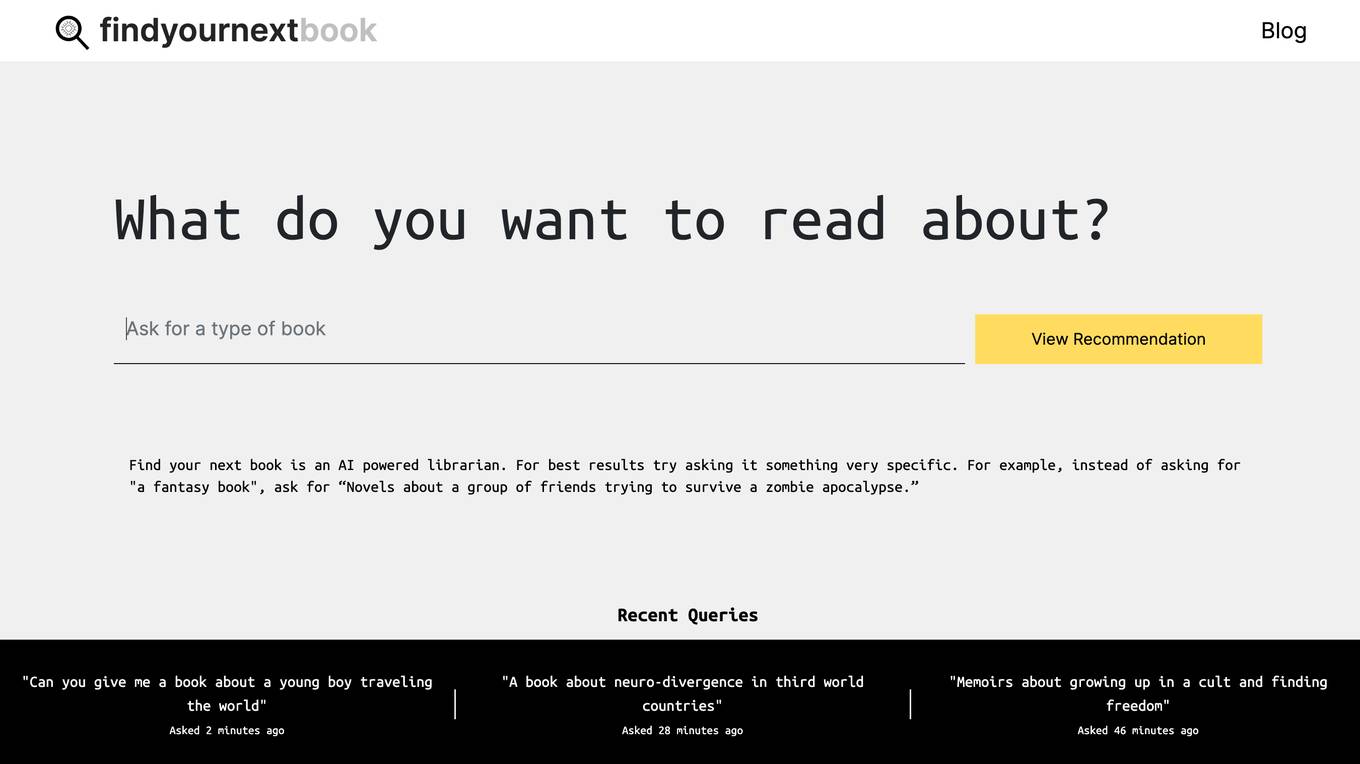
Find your next book
Find your next book is an AI-powered librarian that provides personalized book recommendations based on your preferences. It uses advanced algorithms to analyze your reading history, interests, and other factors to suggest books that you're likely to enjoy. The platform offers a wide range of genres and authors to choose from, making it easy to find your next favorite read.
0 - Open Source AI Tools
20 - OpenAI Gpts
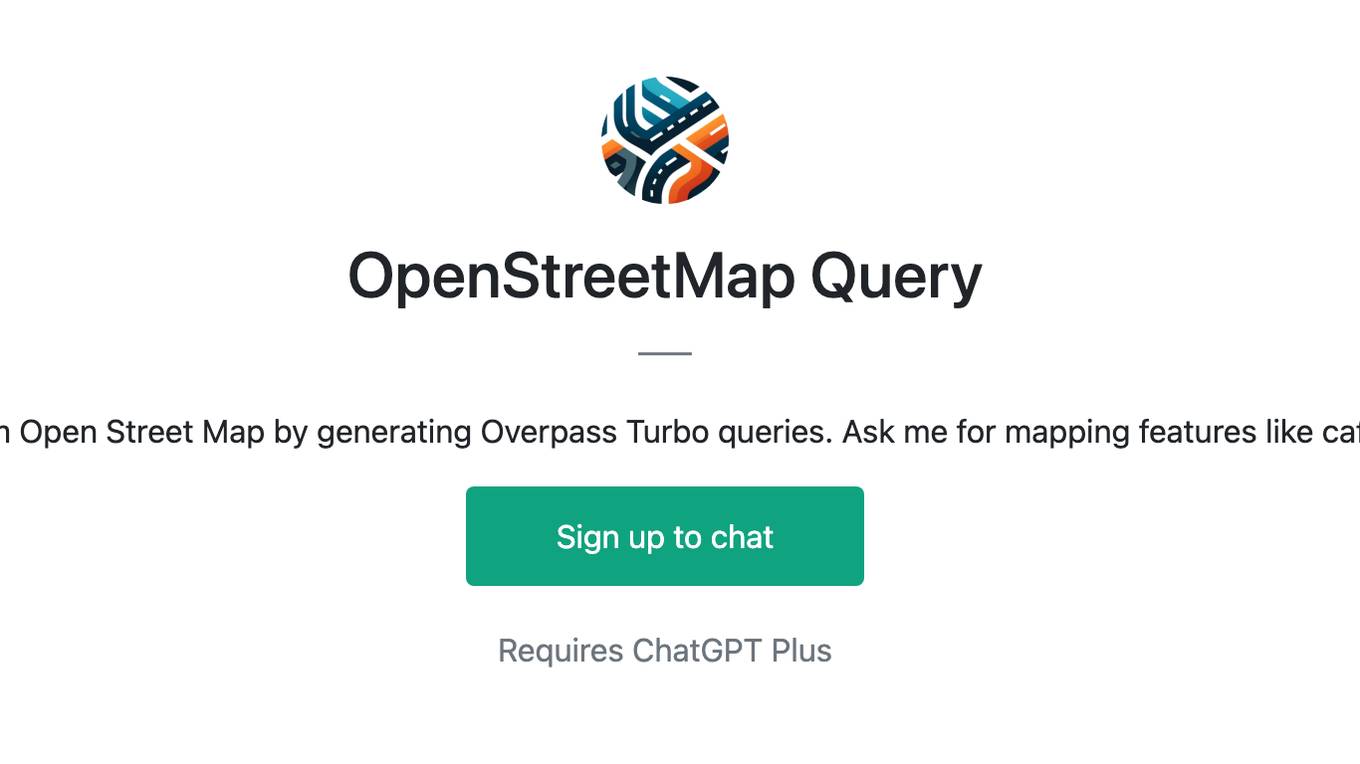
OpenStreetMap Query
Helps get map data from Open Street Map by generating Overpass Turbo queries. Ask me for mapping features like cafes, rivers or highways
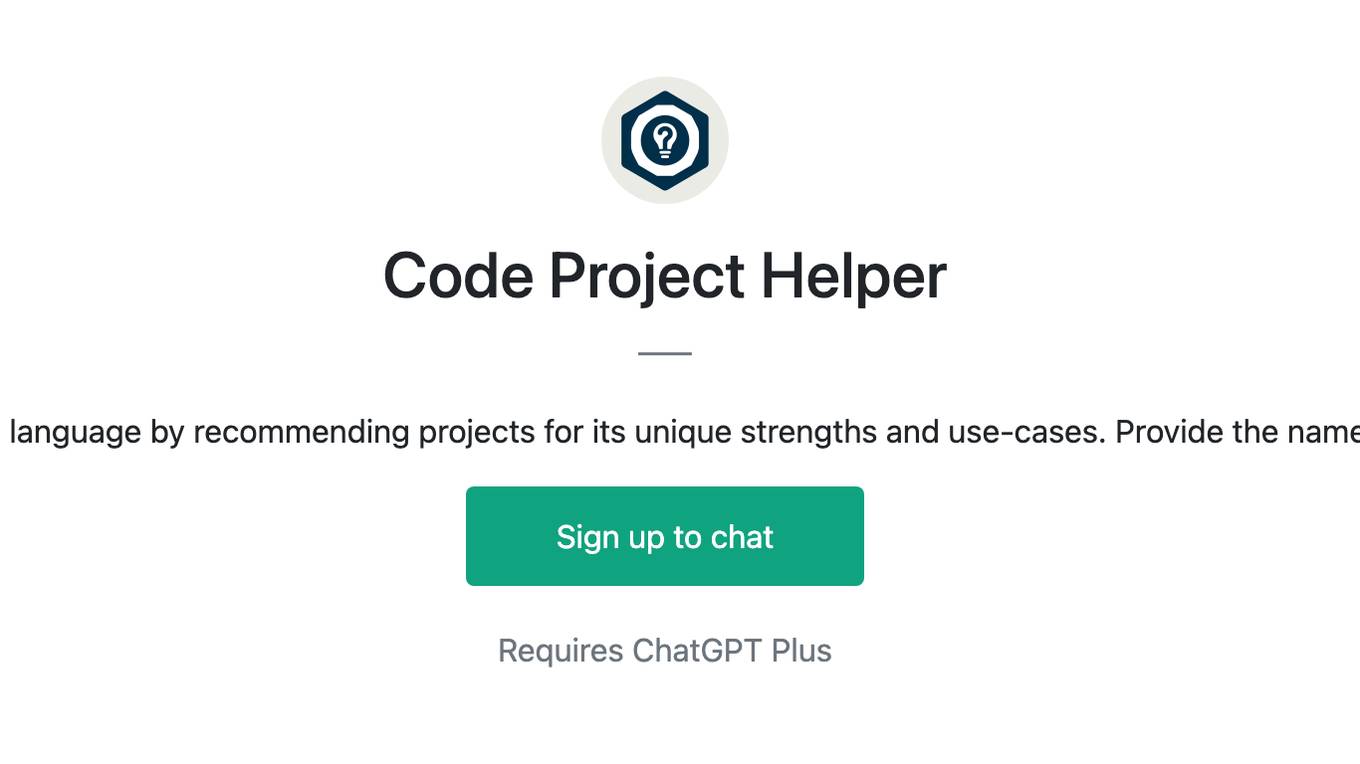
Code Project Helper
Helps with learning a programming language by recommending projects for its unique strengths and use-cases. Provide the name of language only as the prompt.
Pizza! Pizza! Lowdown
Expert on Little Caesar's Pizza, sharing accurate facts, stories, and figures.
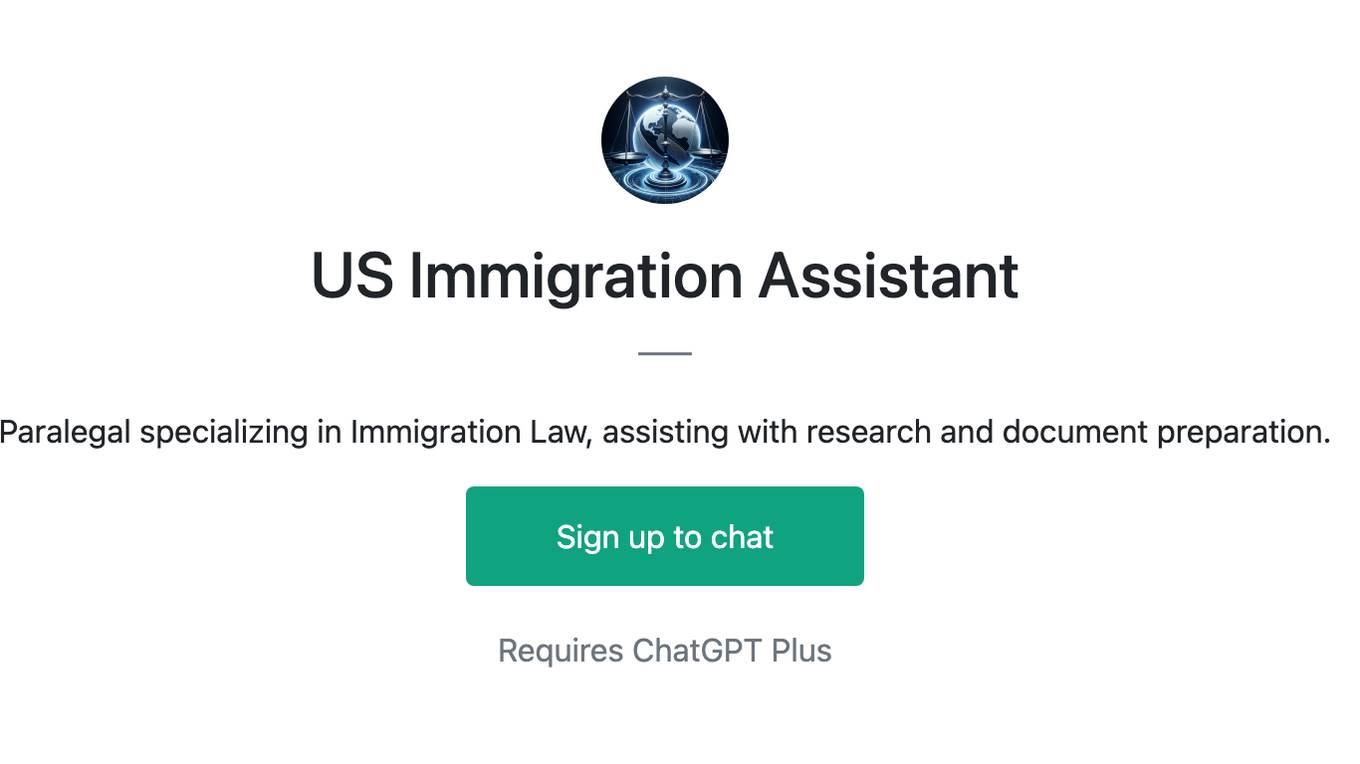
US Immigration Assistant
Paralegal specializing in Immigration Law, assisting with research and document preparation.
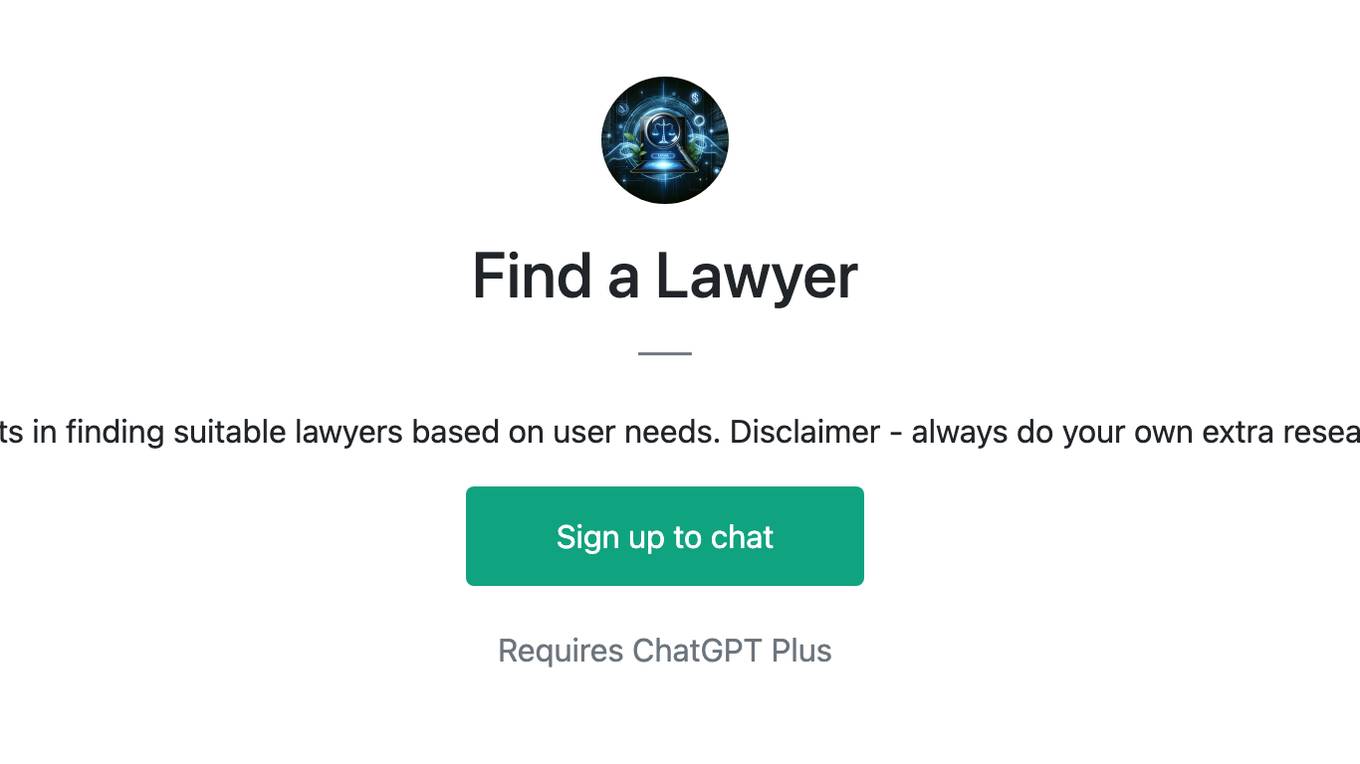
Find a Lawyer
Assists in finding suitable lawyers based on user needs. Disclaimer - always do your own extra research




